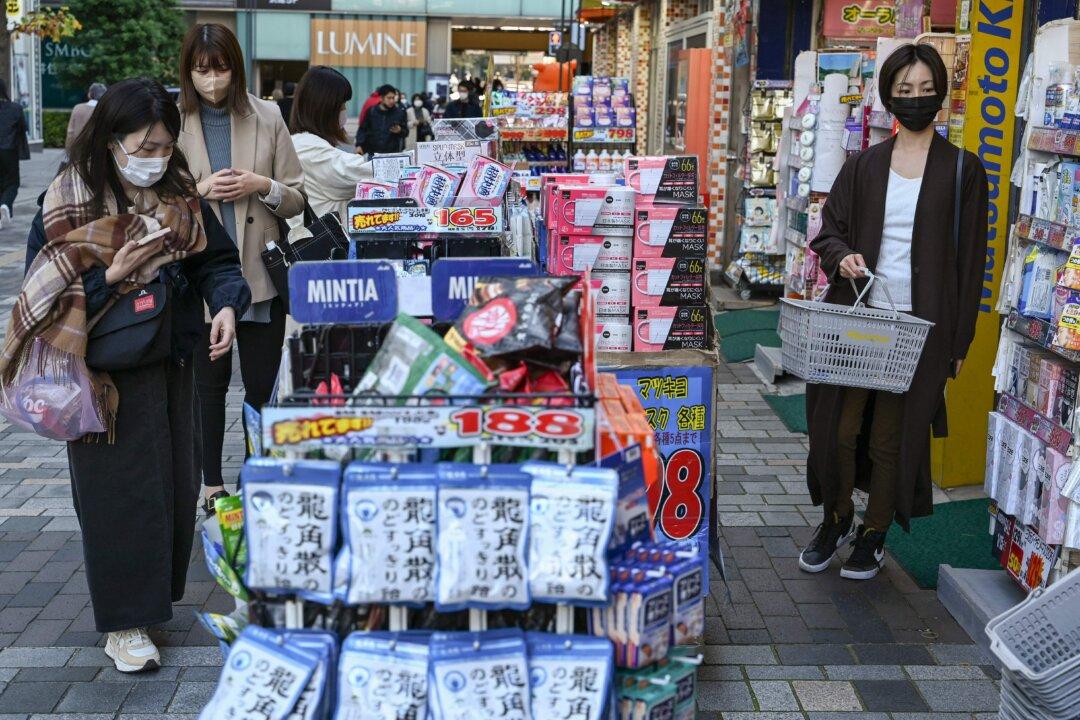The governor of Tokyo has suggested that people wear turtleneck sweaters to keep warm and reduce their electricity consumption this winter amid the global energy crisis.
Tokyo governor Yuriko Koike said that turtlenecks have a thermal effect that can help people endure the winter, a season in which heating demand is expected to surge and power shortages may ensue along with sky-high bills.





